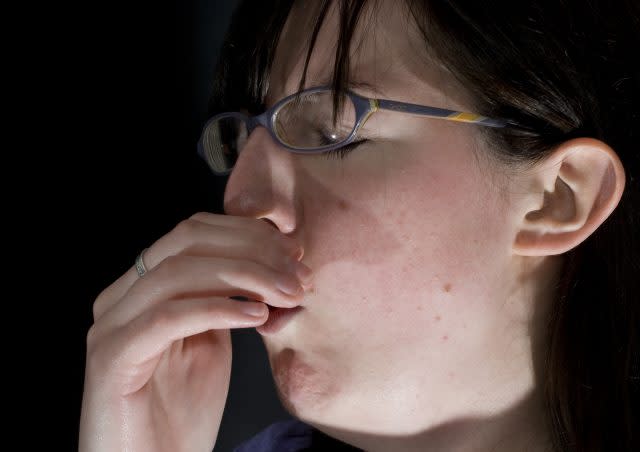10,000 to be tested in world's first universal flu jab trial

NHS patients are to take part in a world-first trial for a universal flu vaccine.
Vaccines are changed each year in a bid to inoculate people against the strains of virus which are most likely to cause illness in the upcoming flu season.
But if a flu vaccine is not well matched to a circulating influenza virus, it may not protect people well from the flu.
With the risk of flu this winter, vital for all NHS staff to get a flu jab. I'm doing my bit... pic.twitter.com/wTvwfW6lEM
-- Jeremy Hunt (@Jeremy_Hunt) September 29, 2017
Researchers from the University of Oxford are now examining whether a new jab could work whatever the strain of flu in circulation.
It is the world's first widespread human testing of such a vaccine, according to the National Institute for Health Research, which is supporting the project.
More than 10,000 people aged 65 and over across Oxfordshire and Berkshire will be asked to take part in the study.
Most current vaccines are only effective in 30 to 40% of over-65s and researchers believe the new vaccine could increase this.
First week of #flumythbuster. Getting your #flu jab will prevent deaths. https://t.co/9dL0l065JR#flufighterpic.twitter.com/vf2JQAVAIn
-- NHS flu fighter (@NHSflufighter) October 2, 2017
But last year's flu jab was not "significantly effective in protecting against influenza for the over-65 population", according to Public Health England.
Data from the health body, released in August, showed that across the UK, the 2016/17 vaccination programme showed that the jab was 40.6% effective in 18-64 year olds, but showed no significant effectiveness in the elderly.
Researchers in the latest trial also hope that the new vaccine could help to reduce the severity and duration of the illness among those who are inoculated, but still fall ill.
The jab, which was developed by Oxford University's Jenner Institute with Vaccitech,works by using the core proteins of the virus instead of the surface proteins.
Vaccitech, an Oxford company developing a universal flu vaccine, is one of the ways Oxford has #UniversityImpacthttps://t.co/gzZLZvDWey
-- OxUni Innovation (@OxUInnovation) January 26, 2017
As the virus changes each year, so do the surface proteins. But the core proteins remain virtually unchanged in all influenza A viruses - which means scientists can try to create vaccines that will work against all of them.
The new vaccine, which has already undergone safety testing in 145 people, stimulates the immune system to boost influenza-specific T-cells, instead of antibodies, that kill the virus as it tries to spread through the body.
Everyone has some influenza-specific T cells already, but numbers of them are often too low to be protective.

Previous studies have indicated that these T-cells can help fight more than one type of flu virus.
The participants for the study will get the regular annual flu jab plus the new vaccine, or the regular jab and a placebo shot.
Sarah Gilbert, professor of vaccinology at Oxford University and co-founder of Vaccitech, said: "Every year, flu in older adults causes serious illness and sometimes death.
"We want to improve the situation, but in order to do that we need volunteers to help us test a new vaccine. If you are invited to take part, please consider doing so."

The news of the trail comes as the NHS has been warned to brace itself for a particularly bad flu season.
NHS England boss Simon Stevens warned hospitals to be prepared for a "pressurised" flu season following a "heavy flu outbreak" in the Southern Hemisphere during its winter.
Mr Stevens said the health service was reviewing the situation in Australia and New Zealand, where hospitals were forced to close their doors to new patients and people faced long waiting times.


